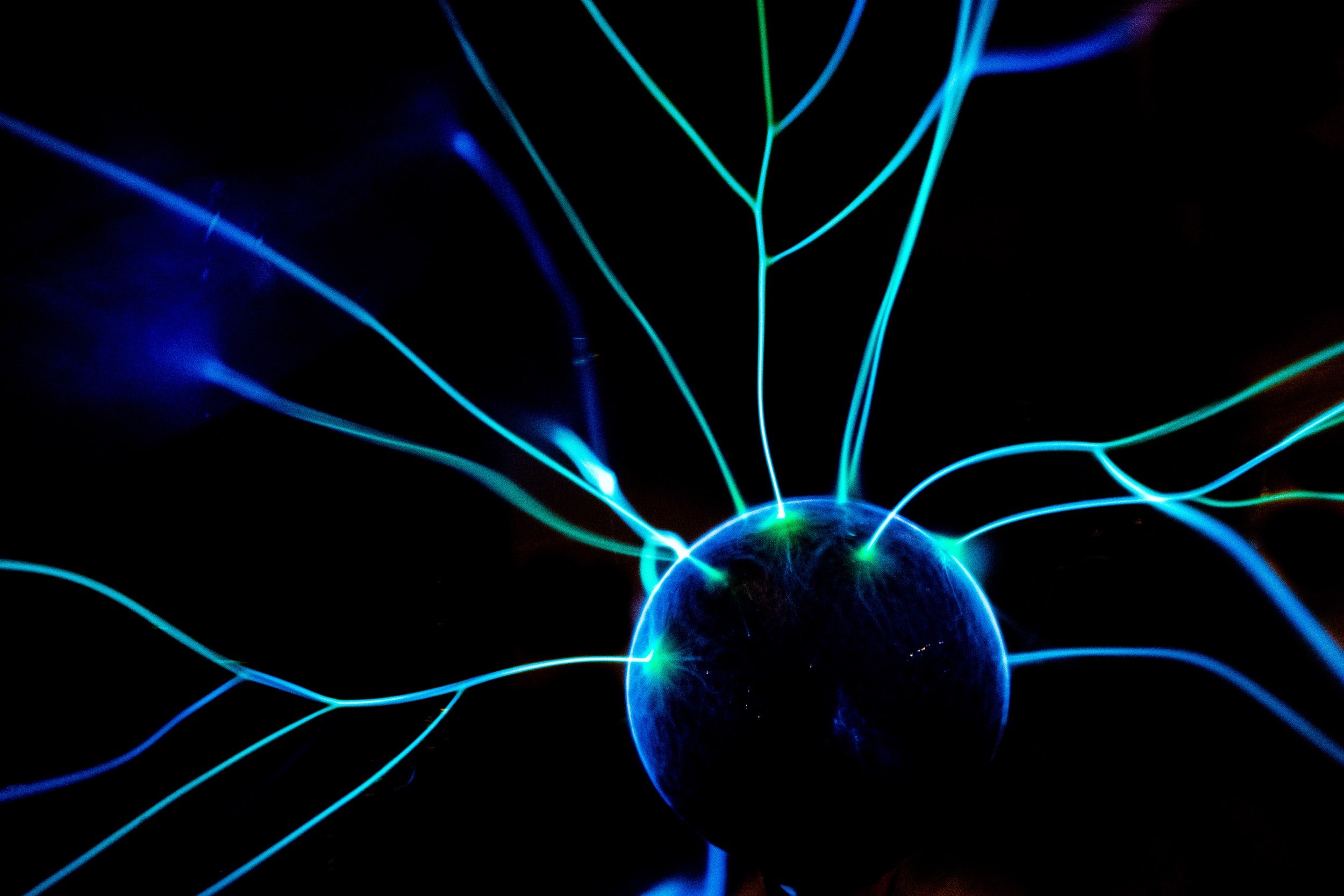”In 2030, climate technologies will change the way we distribute energy and capture emissions” Andre Loesekrug-Pietri, JEDI
André Loesekrug-Pietri, Chairman, Joint European Disruptive Initiative (JEDI) held leadership positions in private equity, government, industry and as an entrepreneur. He then spent 15 years in private equity and venture capital, including 10 years with China, investing in European companies with global ambitions. In 2017, he paused from the private sector to become Special Advisor to the French Minister of Defence, responsible in particular for European Defense policy as well as technology and innovation. He is currently leading the Joint European Disruptive Initiative (JEDI), aiming to accelerate European leadership in disruptive innovations. Graduate from HEC and from Harvard Kennedy School, he attended Sup-Aero aerospace engineering school. He is a Young Global Leader by the World Economic Forum, a private pilot and a Colonel with the French Air Force People’s Reserve.
First of all, why JEDI?
Europe can sometimes invent names that are cool and engaging. The name tells everything: we look at something at European scale because we think technology and innovation at scale is almost everything. We focus too much on thinking about money. People don't realize that the risk is the same everywhere in the world, but the potential is totally different. When you are in Europe, at best you can create a big German, Swedish, Romanian company. When you go big in China or the US, you have a continental scale and this is why valuations are so much higher. And on our side, which is fundamental science and research, we also need to make sure that all the efforts we do can have a massive, massive scale. Our model is DARPA, but we don't look at defense topics, we look at disruptive innovation, those that are today too risky for the private sector. This initiative was created because we want to create something that is agile, non-bureaucratic.
How do you operate in European countries?
JEDI is a very new initiative, we are 2 years old. We launch grand challenges on topics like healthcare, climate, energy, digital, space, oceans, topics which today are too risky or too long-term for the private sector. So it is purpose-driven research - we set a very clear goal of something that needs to be achieved, frontiers that need to be pushed. And then we make sure that we get the best teams from all over Europe, wherever they come from - academia, tech, startup ecosystem, industry - we only care about one thing, which is excellence. And secondly, we focus on speed, as much as on money. Third, we don't really put high hurdles at the beginning, we put much more attention on the impact. At JEDI we care about the impact on these ideas. And in exchange of removing all the bureaucratic hurdles, we are much more demanding in terms of the impact. And the last thing is fundamental science.
We aim to create a bridge between fundamental and applied research. And we always have measurable objectives. And this is something that is a little bit misunderstood by DARPA. DARPA has not succeeded in everything, but they were always very good at identifying a couple of years earlier what would become important. So this is why foresight is essential to us.
In order to have good foresight results, we try to bring together the best experts to help us understand what is the frontier in Cloud, what is the frontier in Cybersecurity, and what are the topics which make sense. So it's a very bottom-up approach. And that's why we also involve a lot of people from Romania, especially from Cybersecurity, but also from AI.
What advice would you give to European start-ups that want to be more innovative? What should be their main focus?
That's a tough question because it depends so much. We need to remain optimistic. Because if you're not optimistic, and that's one of the concerns and probably your concern too, is we need to make sure that the younger generations have a positive view of what innovation and technology can bring. It does not - I don't like the word educate, because educate means we are going to tell you what is right - we need to explain what is possible. And then everybody makes their own opinion. We need to trust people rather than educate them. That's point number one.
Number two, I think the startups need to be very focused on specific problems to solve: what is your contribution in terms of materials? What is your contribution in terms of energy density? What is your contribution in terms of energy efficiency?
The third thing is to think immediately at European scale and it's hard because one of the things we did not do is create a truly European market. There is no true European market. When you're in Cybersecurity or in Energy, there are national watchdogs and I can understand that it's legitimate from a political point of view. But that means that, especially for smaller organizations, each time you go to a new market, you have entry costs and regulatory costs, which actually goes against what technology is so beautiful about: once you've developed your basic knowledge, especially in the software area, then the marginal costs are relatively limited, except the commercial aspect. So think about niches where this European scaling is probably easier.
And last but not least, is, I think, interaction with larger organizations. Increasingly, these organizations realize that it's very difficult for them to disrupt their own business. Think about hydrogen, we have almost 27 hydrogen strategies and they are often not connected. And then you have the European layer that tries to get some coherence, but it's complicated. And unless we change that, it's going to be difficult to actually reap the benefit of this technology acceleration. This deep tech, a buzzword now, is a true revolution, because it is the second wave of innovation we have had for the last 15, 20 years: a lot of business model innovation, a lot of the digital platforms are about that. Now, there is a chance for the Europeans to go back ahead. But maybe last advice for this, try to focus on cutting-edge technology because increasingly, we are in a world where the margins are concentrated on the first movers.
How do you look at 2030? What would be a realistic scenario for the European ecosystem in deep tech?
On the climate topic, I think there is an opportunity in areas like emissions, mobility, power, electricity production, and agriculture, these are major industries and economic areas for Europe. Climate technologies will change everything in the way we store energy, distribute energy, and capture emissions, especially in heavy industry, think about cement or steel.
Secondly, to make sure that we experiment a lot. And we don't try always to pick the winners because if you pick the winner, you go to the incumbents because they have high existing track record. So we are really calling for a change of mindset because Europe is a great project. So 2030, if this happens, we have an opportunity, because it's not going to affect only the climate area, the energy or the digital area. I mentioned to you one of the challenges we have currently on blockchain and blockchain could be a game-changer. In the same manner, could we imagine an AI which is much more energy-efficient than today? Now when you do deep neural networks, they consume massive amounts of energy. So the game-changer will have to come from that. We will need to have game changes in the way we restore energy. Can we think about producing green hydrogen at a similar cost to grey hydrogen? Today it is three times more expensive. Everybody talks about hydrogen but 95% is grey.
My idea of 2030 is that we will have a few of these breakthroughs, very targeted with the biggest potential impact. But also think about agriculture, how that is contributing to climate change. One of the challenges we are about to launch is real-time monitoring of how much carbon is stored in different crops. And if we are able to link two of the most fundamental strategies of the European Union, which is agriculture on one side, and climate on the other side, that's revolutionary. This can put us back to create new industries, create new jobs, and also show the rest of the world that this transition is not necessarily a transition, which has to be linked with reducing growth and prosperity, which I don't believe in, because maybe some want to have that in Europe and maybe we are rich enough to allow that. But clearly, there is a moral imperative compared to the rest of the world. The Chinese, the Indians, they will only follow suit if there is a positive way out of that crisis.
But time is running out and my biggest concern for 2030 is: will we be able to think at a European level also in days and weeks and not always in months and years? Because we just experienced this incredible acceleration of time.
What innovations are you most excited about in the near future?
First, your brain: 85 billion neurons, an order of magnitude more connections, consumes 20 Watts and is able to perform calculations but today we still cannot simulate it. So my biggest bet is will we be able to simulate digital systems that can have this energy efficiency? This is related to neuromorphic chips, and neural implants.
Point number two is on fundamental energy production, obviously nuclear fusion. We need to be able to revisit the same problem, but always with new eyes. That means you don`t say “Oh, we tested that already 10 or 20 years ago”. Today, AI allows you to have this massively complex simulation of controlling the plasma within the nuclear fusion reactor, the new capacities of magnets allow you to have this potential that was probably impossible to imagine even 12 or 18 months ago.
So this is really our philosophy: we should be able to think exponentially. And that's the biggest challenge for us as humans, to think disruptive, to think out of the box. And we saw that during the COVID crisis, which I think is a great learning experience. And I think this deep tech revolution actually opens up the opportunities: first, it accelerates; second, you have an immense mesh of people who are connected. We saw that during Covid: scientists working together and with digital help; but the third thing, which is probably the most difficult, is the interdisciplinarity unit. That means you cannot be just a specialist of space. To do a challenge on soil carbon you will need space specialists, IoT, AI and agriculture specialists. These people don't speak the same language. For example, if you don't connect digital and healthcare, you probably miss the biggest revolution of protein folding in CRISPR, etc. So this is what we need.
But that is really a question of methodology. Organizations are evolving and I think there's no such thing as public and private anymore, you need to have a close collaboration, which means that you need to manage conflicts of interest. And I think the public side needs to have more trust in the ecosystem, in the civil society, that's our hope.
Cover photo: François Bouchon / Le Figaro



